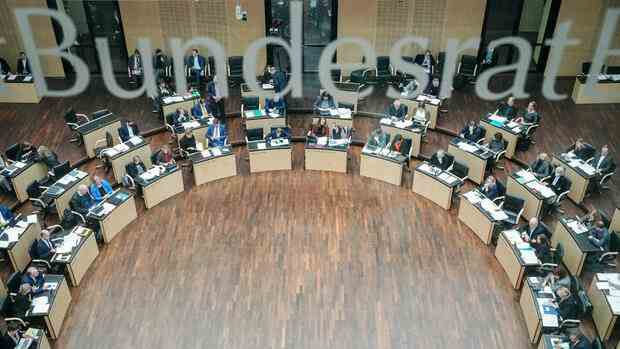Berlin Whistleblowers who uncover abuses in companies must continue to wait for better protection in Germany. The Whistleblower Protection Act launched by the traffic light groups in the Bundestag last year did not receive the necessary approval in the Bundesrat. It can therefore not come into force.
The law was blocked by the federal states, in which the Union co-governs. These countries currently have 38 of the 69 votes in the Bundesrat and thus have a blocking majority. The traffic light coalition of SPD, FDP and Greens is therefore dependent on the goodwill of the CDU and CSU.
When it came to protecting whistleblowers, EU countries were unable to support this law for a number of reasons. It is criticized, for example, that the regulations go far beyond the EU requirements. Bavaria’s Justice Minister Georg Eisenreich (CSU) noted that this would place an undue burden on small and medium-sized companies. “We just need more sense of proportion.”
The Whistleblower Protection Act is overdue. Germany should actually have transposed a corresponding EU directive into national law in December of last year. The law passed by the traffic light coalition regulates reports of fraud, corruption and other abuses. In the future, authorities and companies will have to create separate internal contact points and also accept anonymous tips.
Hesse’s Minister of Justice Roman Poseck (CDU) warned that the planned anonymous reporting channel also contained the risk of abuse. “Not every whistleblower is up to no good.”
SPD and Greens no longer want to change the law
The minister is also critical of “the bureaucratic and financial hurdles” that the law entails for companies. “Their concerns must also be incorporated into the legislation, and this is particularly so in today’s world, in which companies are exposed to numerous burdens and uncertainties,” said Poseck. After all, it is also about future issues of Germany as a business location.
According to Steffen, the draft law is now to be presented again to the Bundestag “with the same content and in a form that does not require approval”.
(Photo: IMAGO/Future Image)
The federal government and the Bundestag now have the option of calling the mediation committee to discuss a compromise with the states. However, it doesn’t look like that at the moment. “The criticisms of the Union are far-fetched,” said SPD domestic politician Sebastian Fiedler to the Handelsblatt. He sees no room for negotiations. “It would therefore be conceivable that we would bring the same content of the bill back to the Bundestag as soon as possible in a form that does not require approval.”
The Green right-wing politician Till Steffen also advocates this. “It is unfortunate that the Union persists in its obstinate stance,” he said. But there will be no cutbacks in the law. “The rejection in the Bundesrat will remain a Pyrrhic victory for the Union.”
The Bonn legal scholar Gregor Thüsing also sees a need for improvement in the law. “Anyone who culpably reports something wrong and thereby harms others must – as in other civil law matters – take responsibility for it and compensate for the damage if necessary,” Thüsing told the Handelsblatt.
So far there has also been no incentive in the law for the whistleblower to first contact the internal reporting office. “It will regularly be able to react much faster and probably also more competently than the Federal Office of Justice, which is intended as an external reporting office,” explained the expert.
>> Read here: Read, suffer, punch – bureaucratic madness in Germany
The European Directive therefore also expressly requires that the Member States support reporting via internal reporting channels, in which effective action can be taken against the violation without the whistleblower having to fear reprisals.
benefits for the economy
The fact that this is missing from the present draft law is “a serious mistake,” said Thüsing. Because there is a lack of the necessary incentives to use internal reporting channels, a workload for external reporting offices is to be expected. “It may be doubted whether the 17.52 posts at the external reporting office provided for in the draft justification for the receipt and processing of reports are sufficient to do justice to the considerable workload to be expected,” believes the legal expert.
Not every whistleblower is up to no good. Roman Poseck (CDU)
For the economy, on the other hand, better protection for whistleblowers could have great advantages. The insurers are hoping for a long-term decline in white-collar crime: “On the one hand, whistleblowing systems increase the risk of being discovered and deter potential perpetrators,” said Jörg Asmussen, General Manager of the German Insurance Association (GDV), the Handelsblatt. In addition, actions would be recognized earlier and can cause less damage. This will have “positive effects for the German economy”.
In medium-sized companies, whistleblower systems have hardly been in place to date. According to a representative Forsa survey commissioned by the GDV, in spring 2022 only every fourth medium-sized company had a whistleblower system, as is now to be prescribed.
Managing directors and board members who have not established a whistleblower system in their company by the time the law comes into force can face fines and high liability claims in the future.
More: Informers or important whistleblowers? Who really reports as a whistleblower in companies
